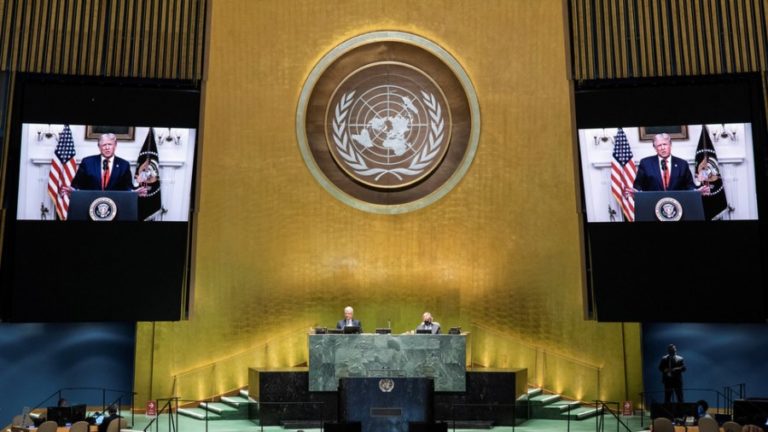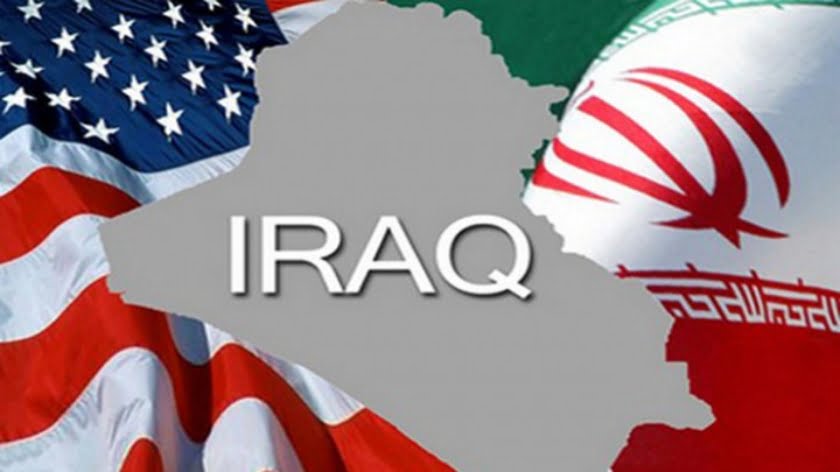Why a Coup in Qatar could be a Game-Changer in the Middle East
If rumours about a coup in Qatar this week turn out to be true, who could benefit from it and what would the possible consequences for the region be?
Social media users may have seen recent footage of an alleged attempted coup d’etat in Qatar – footage rife with shooting and screaming.
According to a regional report, unusual activity was reported in Al Wakrah in Doha, apparently confirmed by videos in which gunshots can be heard. The attempted coup, if in fact real, was allegedly led by former Prime Minister of Qatar Sheikh Hamad bin Jassim. The report also suggests that warplanes scrambled to respond to the situation very early on, with allegations that Qatar’s Emir was heading to London on a private airplane to escape.
The reports follow a Saudi Gazette article alleging that Sheikh Mubarak Bin Khalifa Al-Thani, a member of Qatar’s ruling family, called on Qatar’s Emir to step down. For the record, the Saudi Gazette doesn’t appear to be all that impressed with Al-Thani’s performance either.
However, reports on this particular topic indicate that just like the Kim Jong-un rumours, we probably shouldn’t hold our breath if we are expecting any meat to this story. Qatar’s ambassador to Moscow, Fahad bin Mohammed Al-Attiyah, told TASS News Agency on Monday that the “footage is fake news, it has nothing to do with the reality.” Other regional reports appear to suggest that if not fabricated, the footage is likely outdated. The fact that none of the major Western outlets appear to have reported on it is also reasonably indicative of whether or not this story should be taken seriously (though only to a certain extent).
That being said, I can’t say I’d be surprised if there was going to be a coup d’etat in Qatar in the not-too-distant future. After all, it wasn’t that long ago that Saudi Arabia and the UAE reportedly had planned to invade and overthrow Qatar’s leadership. It also wasn’t that long ago that Saudi Arabia, the UAE and a handful of other states cut diplomatic ties with Qatar and blockaded the country. Had it not been for then-Secretary of State Rex Tillerson’s close ties with the Qatari government following his stint as CEO of Exxon Mobil, the plan to overtly overthrow the government could very well have gone ahead (who knew this type of corruption could pay off?)
While talked about very little in the corporate media, the Saudi-led blockade of Qatar continues to this day – even during the Covid-19 crisis. In the meantime, Qatar has been forming some very significant partnerships with potential Saudi adversaries, in particular, Turkey and Iran. While the threat that Iran poses to the US and its allies in the Middle East is amplified on every Western news channel, it is becoming increasingly clear that Turkey likely poses a larger threat to the Saudi-led bloc than Iran at this stage. This was highlighted well in a report published by Middle East Eye, which revealed how Saudi Arabia, the UAE, and Egypt had hatched a plan with Israel to scale back the regional influence of Turkey and Iran, and even considered the so-called “rehabilitation” of Syrian leader Bashar Assad as a means to achieve this end.
A recent article by Bloomberg entitled“A $6 trillion fund’s guide to the Gulf: Buy Qatar, Avoid Saudi” is just one of the ongoing provocations likely irking the Saudi Kingdom. The fact that it was then republished by Qatar-owned Al Jazeera has probably further fanned the flames of the situation. Bear in mind that in 2017, one of Saudi Arabia’s demands for Qatar was that it close Al Jazeera and its affiliate stations, as well as other media outlets funded by Qatar such as Middle East Eye (MEE). Unsurprisingly, the list of demands also included the shutting down of Qatar’s Turkish military base, as well as an end to the military cooperation with Iran. Not only did Qatar reject those demands, but it has seen a noticeable increase in the presence of Turkish troops in the years following the blockade.
Qatar has been in the crosshairs of the US-backed Saudi-led bloc for some time. Iran and Qatar share the world’s largest gas field. The US, together with the Saudi-led bloc, would prefer Qatar and Iran remain enemies, rather than develop and utilise this natural resource in tandem. Qatar not only houses Turkish troops, but it also maintains the largest US military base inside the Middle East, Al-Udeid air base. Al-Udeid houses troops from all over the NATO spectrum, not to mention troops from key US allies such as New Zealand.
This tiny country in the Middle East punches well above its weight. Should a successful coup take place, it would not have an inconsequential domino effect on the rest of the region.
Personally, I have no doubt that some of the heavier US-backed allies in the Middle East would love to bring about the fall of Qatar’s current leadership as a means to bring Doha in line with the Saudi-led narrative. But until credible reports confirm that this eventuality is to take place, we can only continue to speculate as to the reasons and ulterior motives behind the creation of such a volatile and dangerous scenario.
By Darius Shahtahmasebi
Source: RT








One Comment